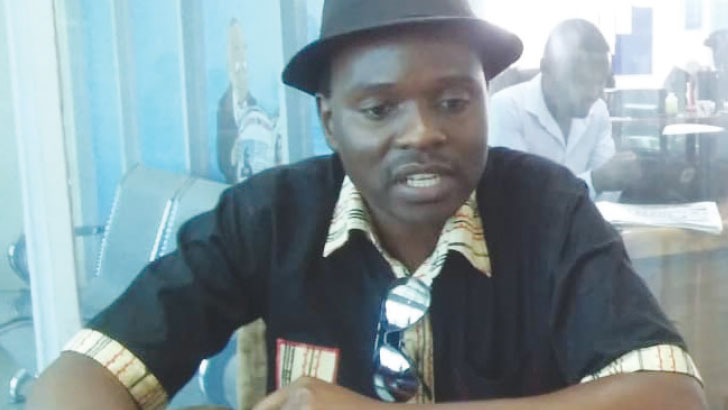Promoting history, heritage
Lost History Foundation (LHF) is an institution that advocates for the preservation of the country’s heritage, including language, history and cultures. Recently, it announced a unique trip to Mwanza on October 9 whose aim is to document and preserve the history of the district in connection with the Mwanza War of October 1967. The foundation is also planning to shoot a documentary on the same. Our arts editor EDITH GONDWE caught up with Paliani Chinguwo, director of research at LHF, to discuss the trip and other aspects of the foundation. Exceprts:

Q
: What has inspired the tour of Mwanza by the Lost History Foundation?
A
: Basically, our role as Lost History Foundation (LHF) is to dig, preserve and disseminate aspects of Malawi history particularly those which very little has been written about or talked about and, therefore, whose details remain scanty as far as the general public is concerned. The Mwanza War of October 1967 is just one good example in this regard. This is what inspired us to organise this tour to the battlefields. For example, not many Malawians know that after independence, Malawi witnessed a war though brief and with no civilian casualties. The war still affected Malawi to the extent that even the then life President Dr Kamuzu Banda testified in Parliament in December 1967 (though he didn’t disclose the names) that Malawi actually received military support from five countries to defeat the ‘rebels’ and win the war.
Q
: What will happen during the tour?
A
: We want the younger generation to understand what actually happened during the war. During the tour, the only surviving ‘rebel’ of the war, Frank Jiya, will be given an opportunity to share his collections and respond to questions, if any. The relatives of the ‘rebels’ will also be given a space to deliver their own reflections and insights. We will also be accompanied by some military experts who will share their own critical analysis of the military strategy that the ‘rebels’ used.
Q
: Give us a brief background of the October 1967 Mwanza War?
A
: The ‘rebels’ had entered the borders of Malawi through Mwanza on September 30 1967 with a mission to take over government. By the end of the day, on Wednesday October 11 1967, Yatuta Chisiza the ‘rebel’ commander and his lieutenant Lutengano Mwahimba lay dead while eight ‘rebels’ had been captured as five ‘rebels’ successfully escaped while Malawi’s security forces suffered heavy casualties. So, during this tour to the battle fields, we will have a team of researchers/historians who will facilitate discussions and reflections on why the ‘rebels’ wanted to overthrow the sitting government and risk their lives as they did. We will also discuss where the ‘rebels’ got their military training, inspiration and how they travelled into Malawi.
We also want to dig deeper and understand how the eight ‘rebels’ were captured and what happened to them and other details in regards to the war. Then we will visit the village and battlefield where the climax of the war took place and where the ‘rebel’ leader Yatuta Chisiza and his lieutenant were shot dead. If time will allow, we will also visit the exact spots where the ‘rebels’ entered the country, among other things.
Q: Why is it important to revisit this part of our history?
A
: The tour provides a platform to conscientise the masses about this war as an important aspect of Malawi’s history and what really happened to the so called ‘rebels’ as well as explore the relevance of this war to the broader struggle for democracy in Malawi. And therefore stimulate a discussion where we as a nation begin to draw important lessons from this episode of our history with an aim to learn from our failures and mistakes as we forge ahead today.
Q
: There was some talk to shoot a movie or documentary about the Mwanza War. Do we still have that project alive?
A
: Indeed there is a project by LHF to produce a video documentary about this war. The shooting was completed what remains now is studio work to finalise the editing and then release the video documentary. If all goes well, the video documentary will be out by the end of this year. For one to join this tour, they need to register with the organisers and then pay a contribution of K10 000 by September 27.





